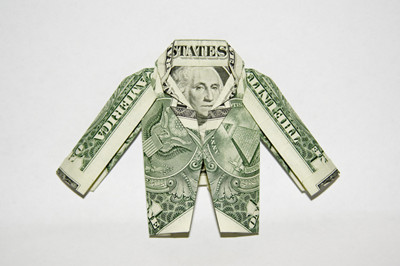
Comedian Louis CK said on Tuesday that he had taken in $500,000 in less than three days from selling his latest standup special directly to the public at $5 a pop. This should make media companies nervous because this is the future — and increasingly, the present — of media distribution. Remember all that stuff people were saying 15 years ago about the Internet's capacity for disintermediation? It's all coming true now.
本周二,喜剧演员路易斯·C·K表示,他将自己最新的单人表演特别节目视频以每部5美元的价格,直接卖给公众。不到3天,销售收入就高达50万美元。媒体公司着实应该为这一现象感到寝食难安,因为这不仅是媒体发行的未来发展趋势,也正日益成为现实。各位是否还记得,15年前,人们曾大谈特谈互联网将成为重要的赚钱工具?现在,转眼之间一切已经成真。
Here's the thing about media companies: they have trouble with edge. That's why local newspapers often churn out inoffensive mush. It's why "local" commercial radio sounds precisely the same in Birmingham, Ala. as it does in Berkeley, Calif. And it's why a brilliant comedian like Louis CK couldn't make it on network television despite two attempts: network executives filed his edges completely away, even though people like him precisely for his edges.
媒体公司的现状是:他们毫无个性可言。正因如此,地方报纸才会乘虚而入,大量刊登无伤大雅的煽情作品;出于同样的原因,阿拉巴马州伯明翰市的“地方”商业广播与加里福尼亚州伯克利市的商业广播听起来同样如出一辙;而且,路易斯·C·K这样杰出的喜剧演员根本无法在网络电视上出人头地。事实上,公众对他钟爱有加就是因为他的表演特点,但在网络高管们的管理之下,其特点已荡然无存。
Even auteur-friendly outlets like Time Warner's (TWX) HBO act as filters between artist and audience. In that case, much of the downside comes on the business end. Louis CK told Terry Gross on Fresh Air this week that with traditional comedy specials, he gets his fee, but never a cut of the aftermarket, where the real money is made. After the special airs, he said, "then they put it on video, you know, on iTunes (AAPL), Netflix (NFLX) and DVD, and then they go try to make a profit with it. You're supposed to participate in that profit, but I've never seen a check from a comedy special. They're just — it's never — it never ends up being that."
即使时代华纳集团(Time Warner)旗下的家庭影院频道(HBO)等倾向于个性导演的市场,实际上也充当着艺术家和观众之间的过滤器。因此,从生意的角度说,它导致了许多弊端。路易斯·C·K本周对《新鲜空气节目》【Fresh Air,美国全国公共广播电台(NPR)时长一小时的谈话节目——译注】主持人特里??格罗斯表示,在传统的喜剧特别节目管理模式下,他只能拿到出场费,但分不到一分钱的销售利润,而后者才是大头。他说,特别节目播出后:“他们(媒体公司)会通过视频、iTunes、Netflix、以及DVD等渠道进行再传播,从中赢利。我本应分得一部分利润,但我从未收到过喜剧特别节目剧组寄来的任何支票。向来如此,那样的事从来没发生过。”
Here, it's all that. On Wednesday morning, the comedian tweeted that sales of the new special had reached 130,000 downloads, for a gross of $650,000. On his Web site, he broke down the finances: the cost of producing the six-camera shoot and renting the Beacon Theater was basically covered by ticket sales (he directed the thing himself and edited the video — which looks as good as any "professionally" produced special). Expenses associated with distributing the video were minimal — there is a near-zero marginal cost for each video sold. And unlike traditional media, very little in the way of fixed costs. No big marketing expenses, no focus groups, no paying media-company middlemen to do ... whatever it is they do. (So far, he's netted about $200,000.)
但是这一次,一个子儿也不少。周三上午,这名喜剧演员在Twitter上称,其最新特别节目的下载量已突破13万大关,总收入为65万美元。在其个人网站上,路易斯·C·K还对相应的资金情况进行了分解:制作节目共动用了6部摄影机,还租用了灯塔剧院(Beacon Theater),而演出门票销售收入基本可以冲抵制作费和场地租赁费等成本(节目由他本人自导自演,视频由其自行编辑,但水准堪与任何“专业公司”制作的特别节目媲美)。与视频销售相关的费用微乎其微:每个视频的销售边际成本几乎为零。此外,不同于传统媒体销售,这里得固定成本也少之又少。这种销售模式无需庞大的营销开支;无需专业团队;亦无需支付媒体公司的经纪费,不管他们到底能做些什么。(迄今,他已经净赚近20万美元。)












